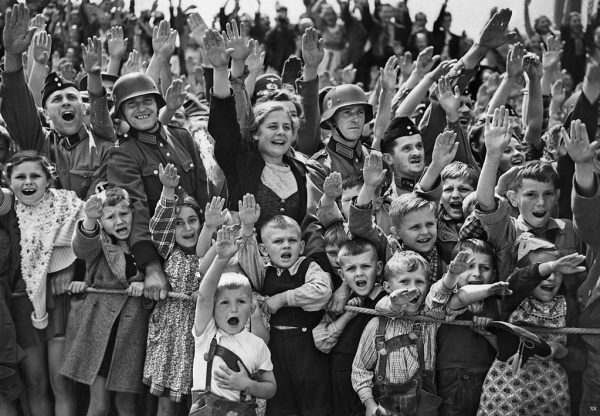
When learning about the role that their community members and/or loved ones played during the Holocaust, descendants of Nazi perpetrators can experience a wide range of emotions: shame, anger, sadness. These emotions stem from the trauma and stigma that many Germans experience as a result of grappling with the ongoing, historic aftermath of the Nazi holocaust. In a recent article, Joachim Savelsberg explores the relationships between cultural trauma and stigma to better understand how Germans manage these emotions.
Savelsberg analyzes family histories written by the descendants of Nazi perpetrators and one victim. He asks: How do the children and grandchildren of Nazi perpetrators make sense of their family’s history and their own existence? For example, he explores how family members grapple with learning that their family members was a Nazi perpetrator and having to consider their role in the Holocaust. Within the pages of these family histories, Savelsberg identifies three ways in which the descendants of genocide perpetrators manage the stigmatized knowledge that their loved ones took part in the Holocaust.
Many authors attempted to silence the past. For example, one author describes a curtain used to cover the lower shelves of his grandfather’s library. It was only after the grandfather’s death that the curtain was pulled back to reveal Nazi propaganda. Denial was also a second typical response. Perpetrator’s family members struggled to search for and acknowledge their family histories while also preserving their family member’s integrity. Interestingly, even after revealing the shelves of Nazi propaganda, such family members sometimes felt the need to express the belief that their grandfather was a good man. Lastly, Savelsberg discusses acknowledgment and confessions, as the authors and family members of perpetrators confessed their own guilt about not asking about their elder’s troubling past.
Through these stigma management strategies, the family members of perpetrators try to reconcile the painful reality that their family members were involved in perpetrating genocide. These findings show that even decades after mass violence, cultural trauma is prevalent among the descendants of perpetrators. The children and grandchildren of Nazi perpetrators struggle to manage the stigma of being related to a genocide perpetrator while also trying to maintain family loyalty and emotional ties. These findings point to the importance of understanding that those who commit mass violence are not monsters, but rather, they are someone’s loved one.
Comments